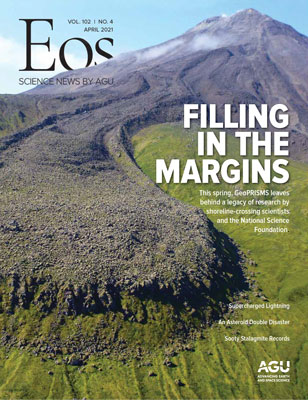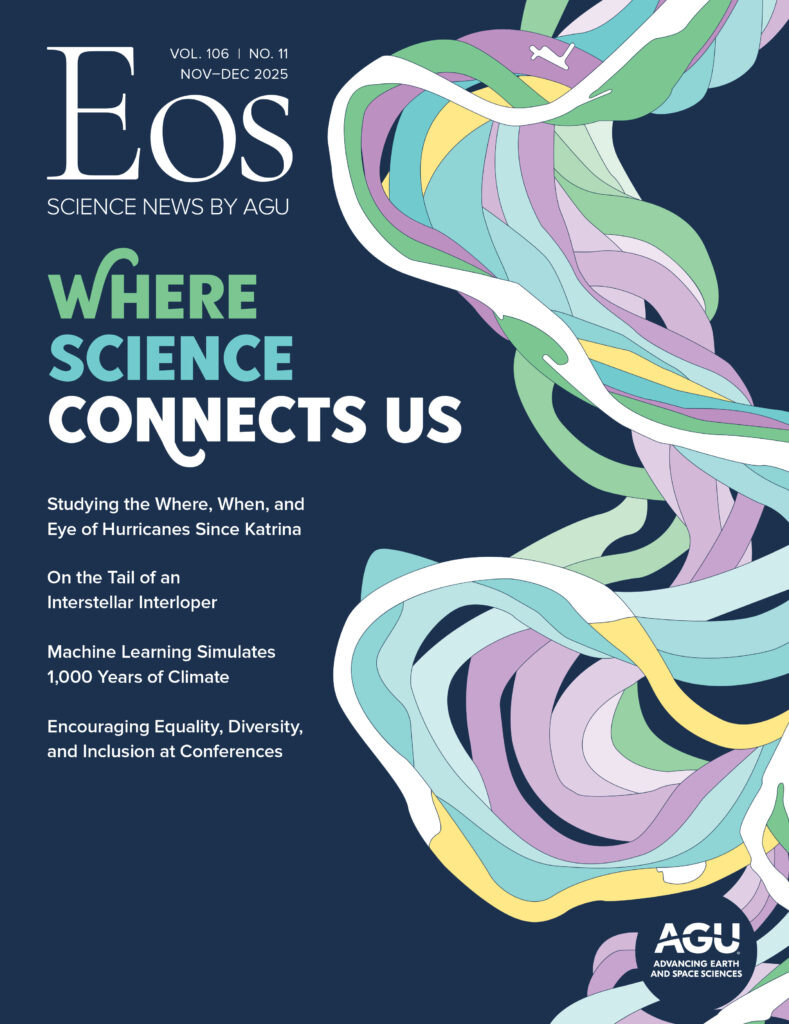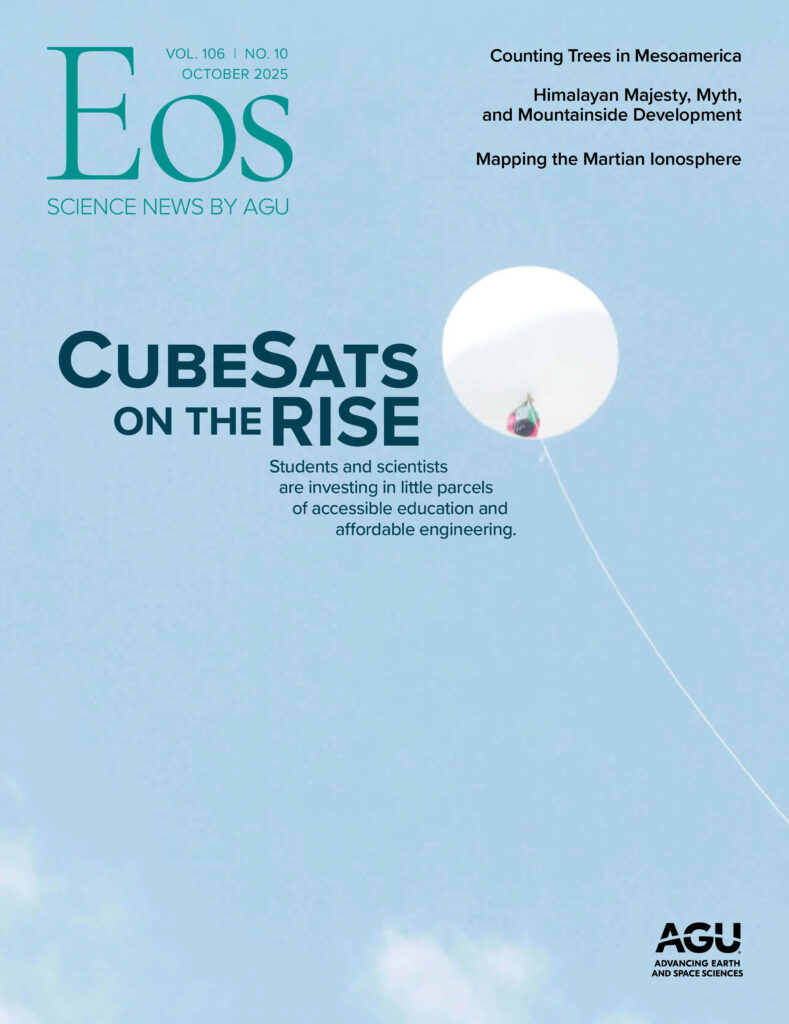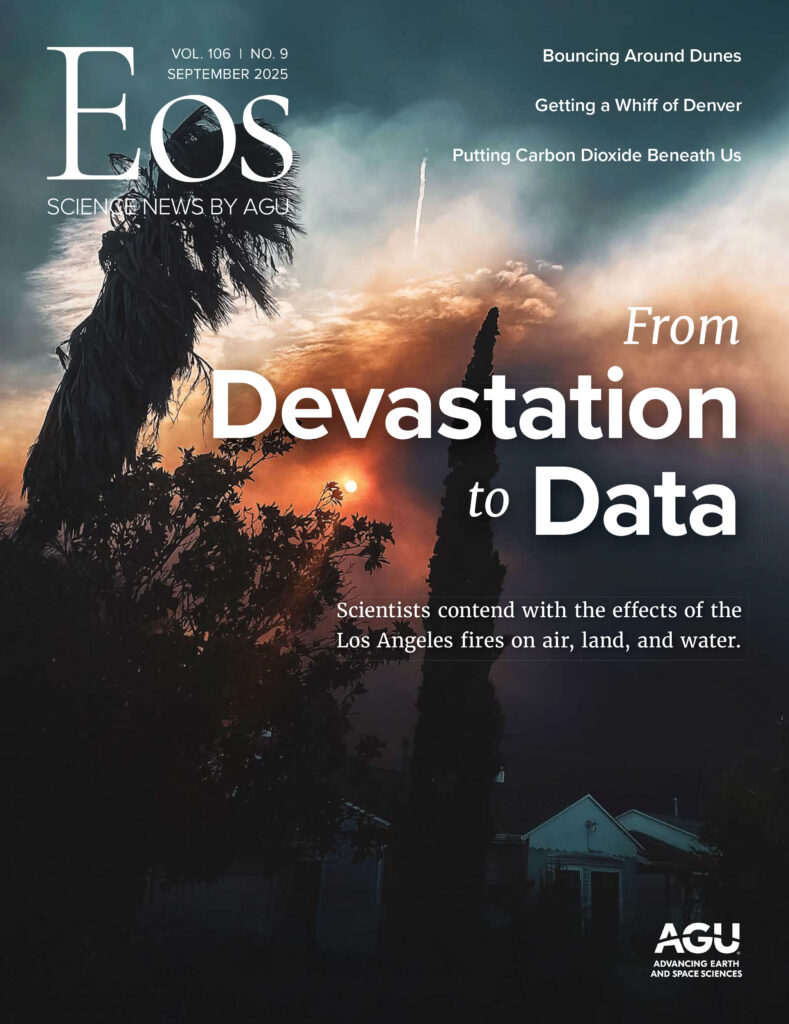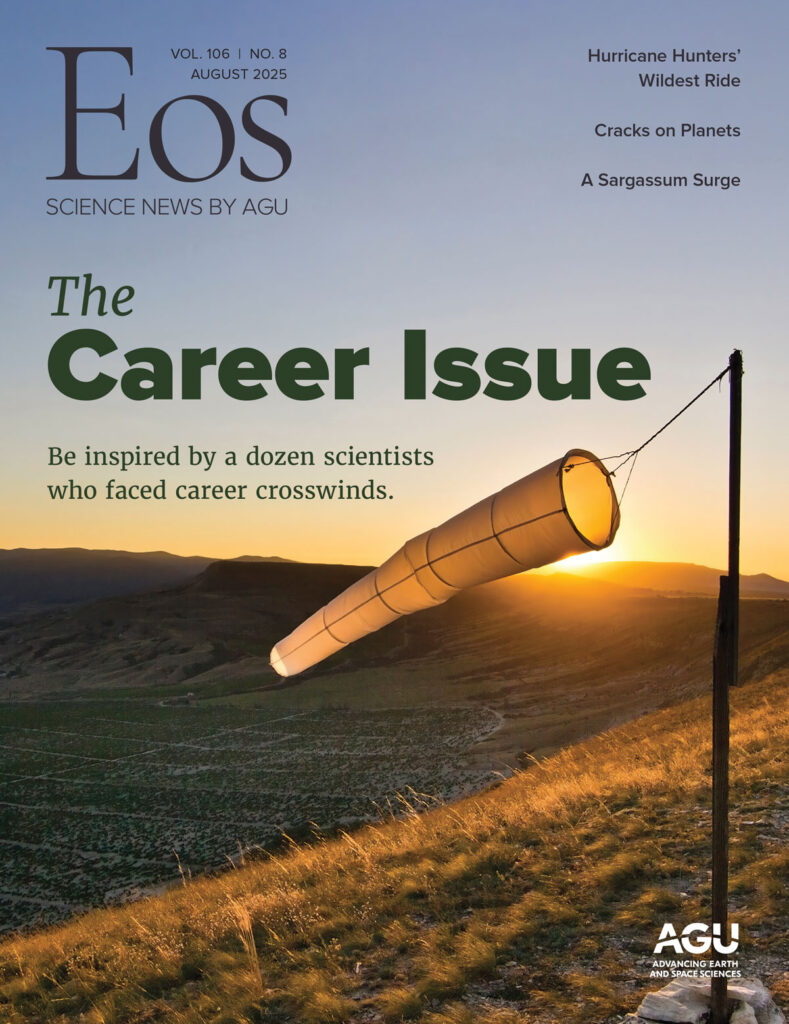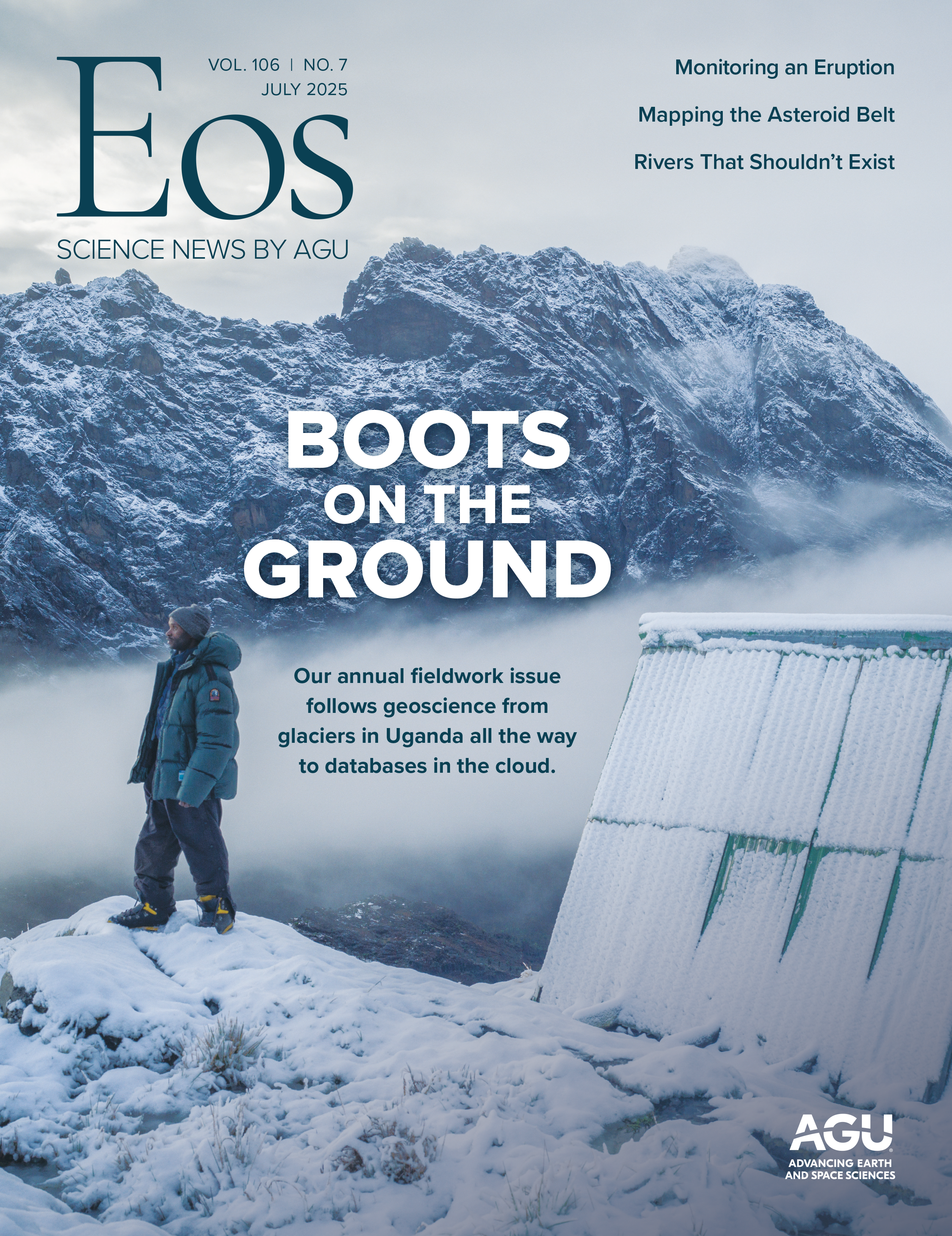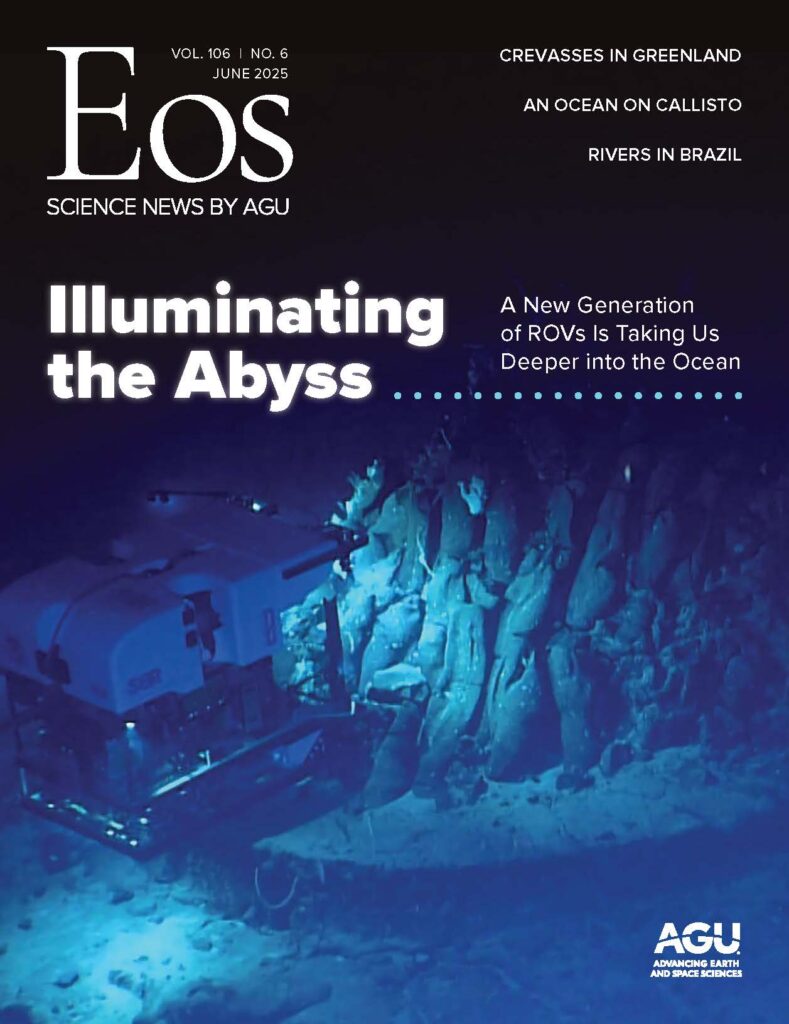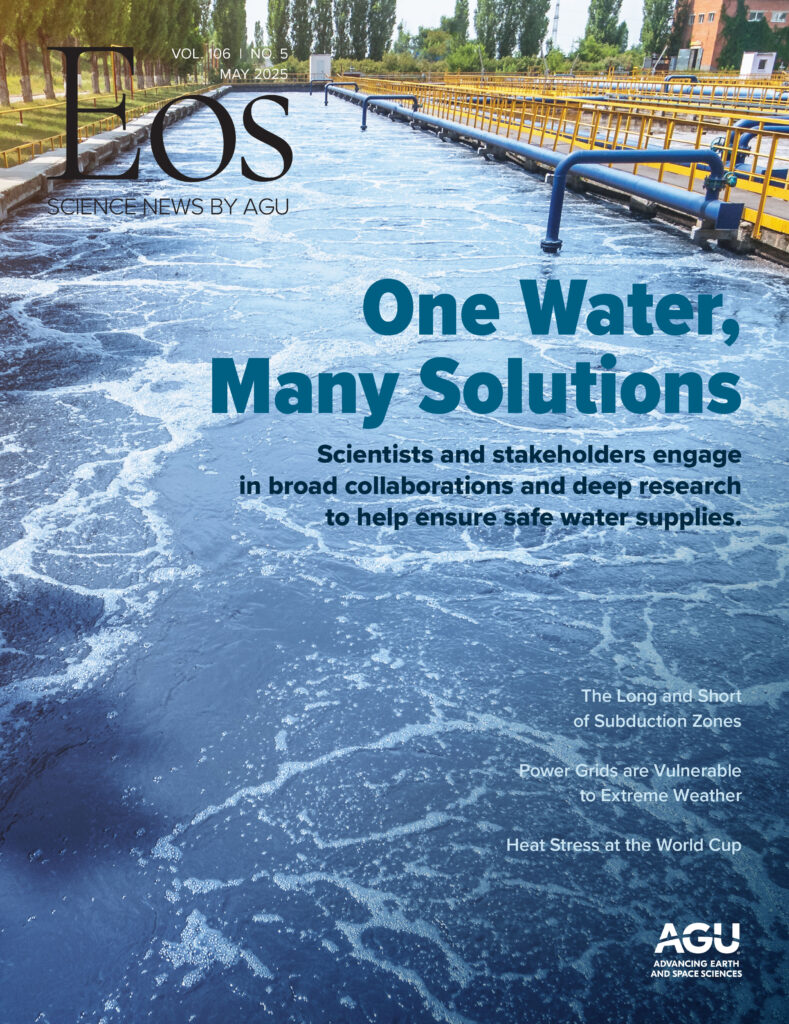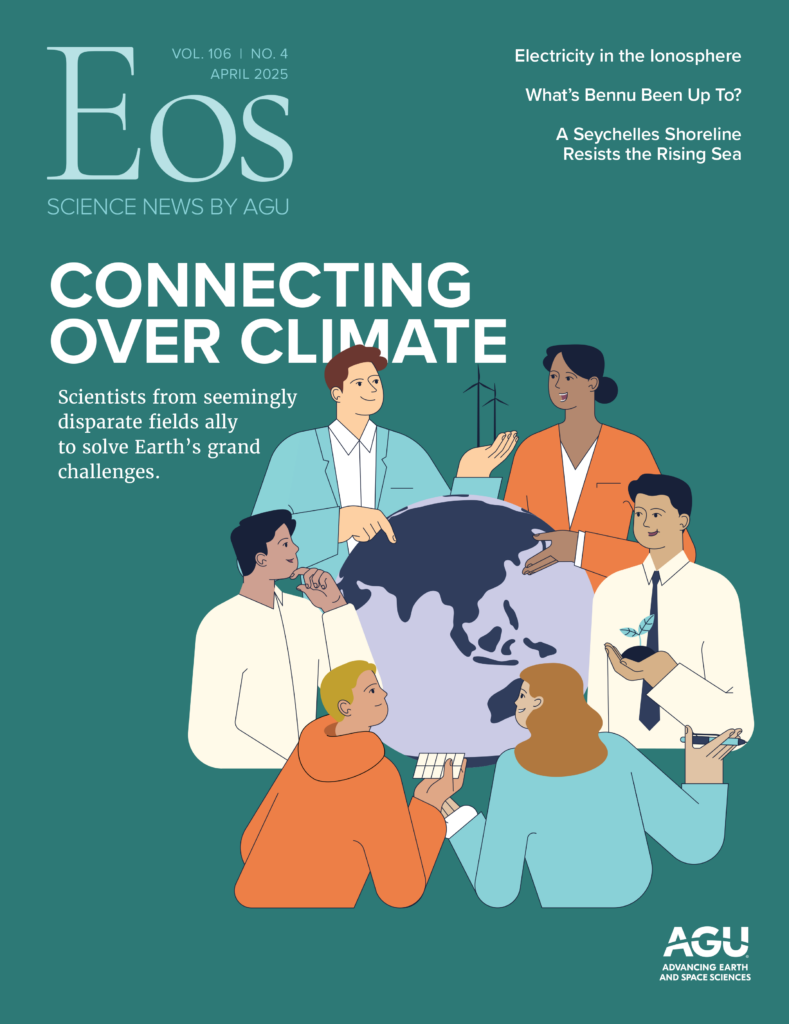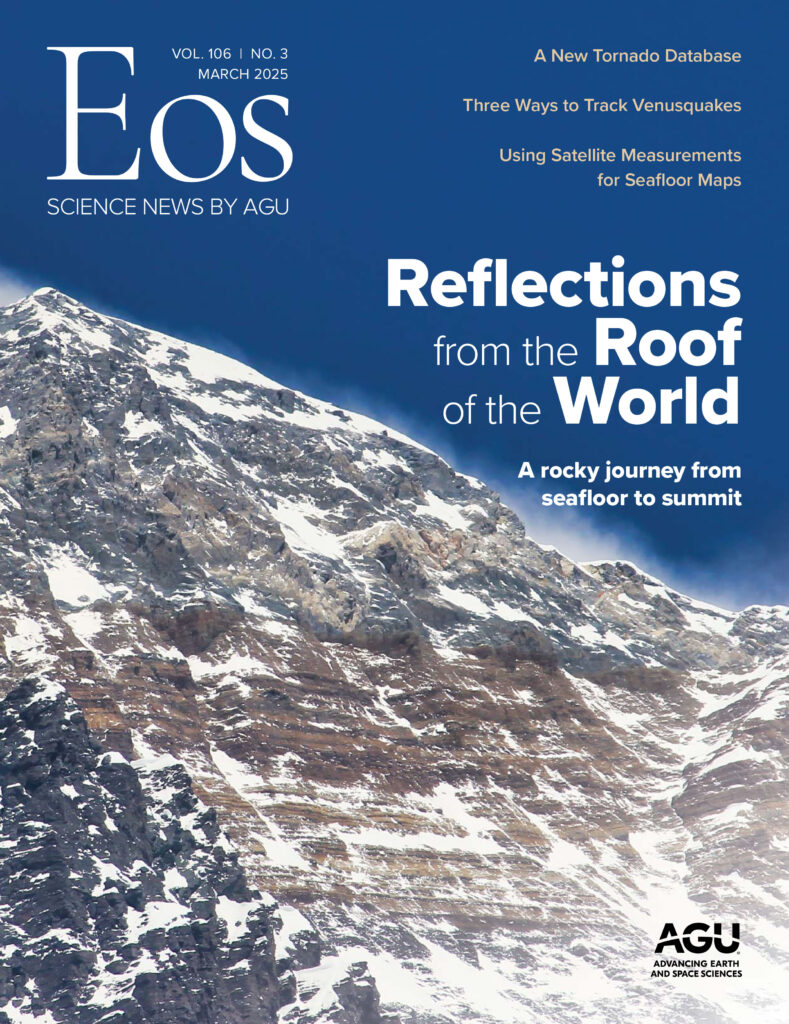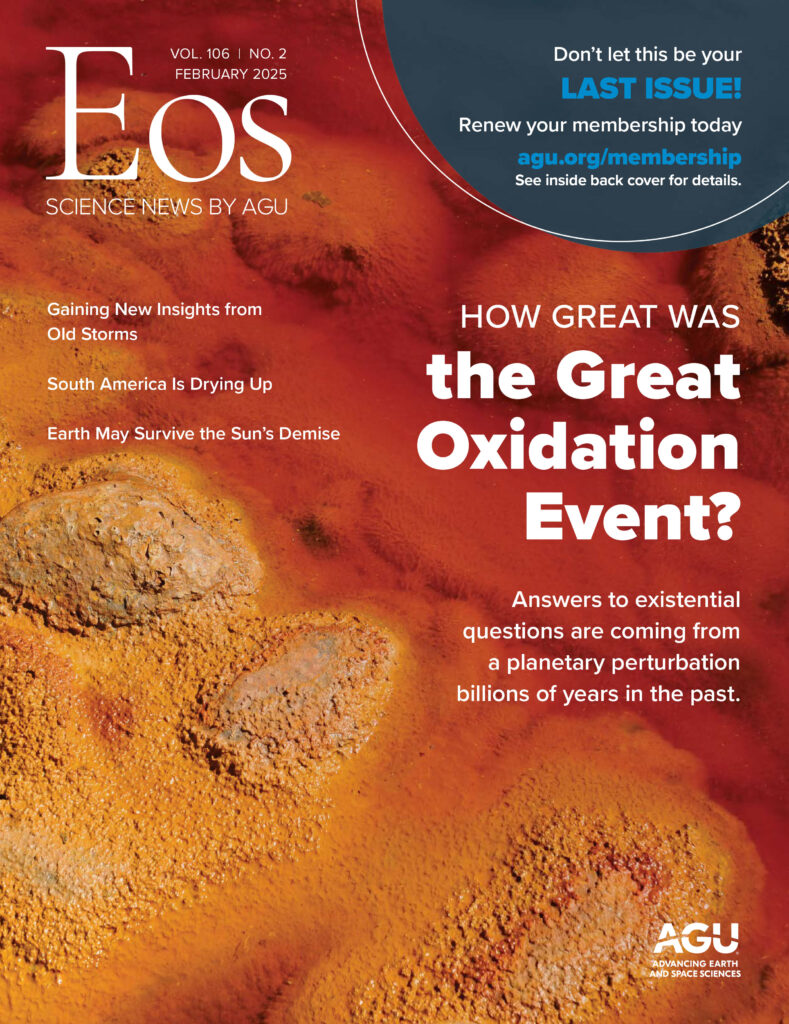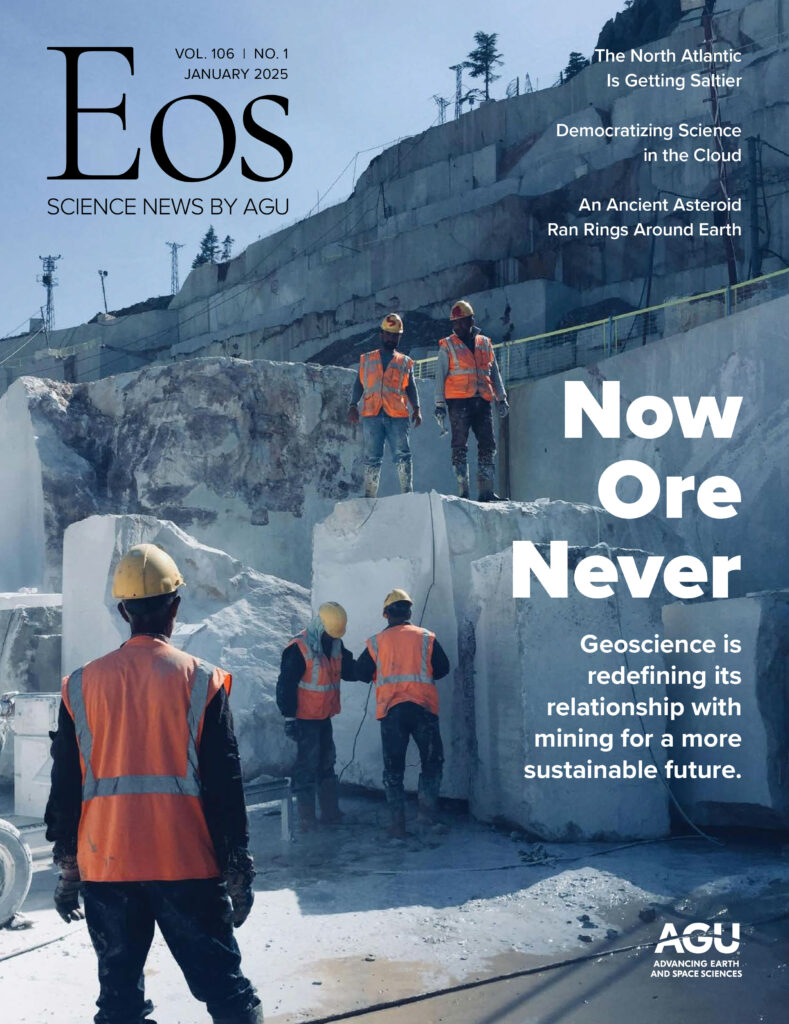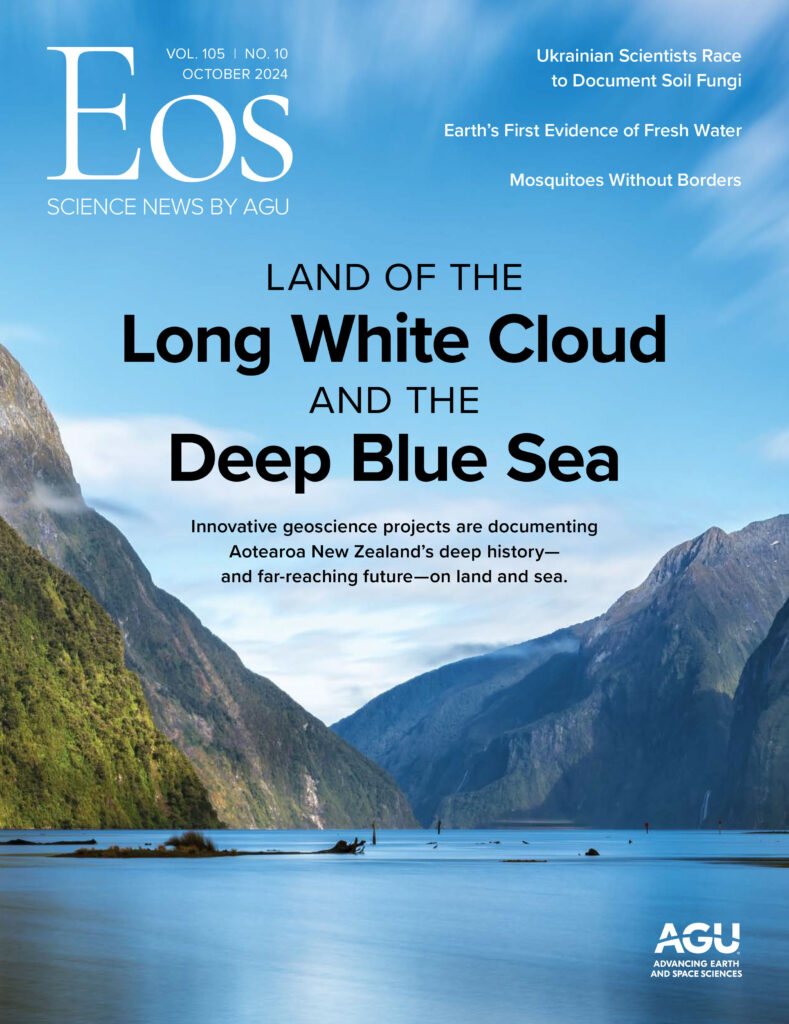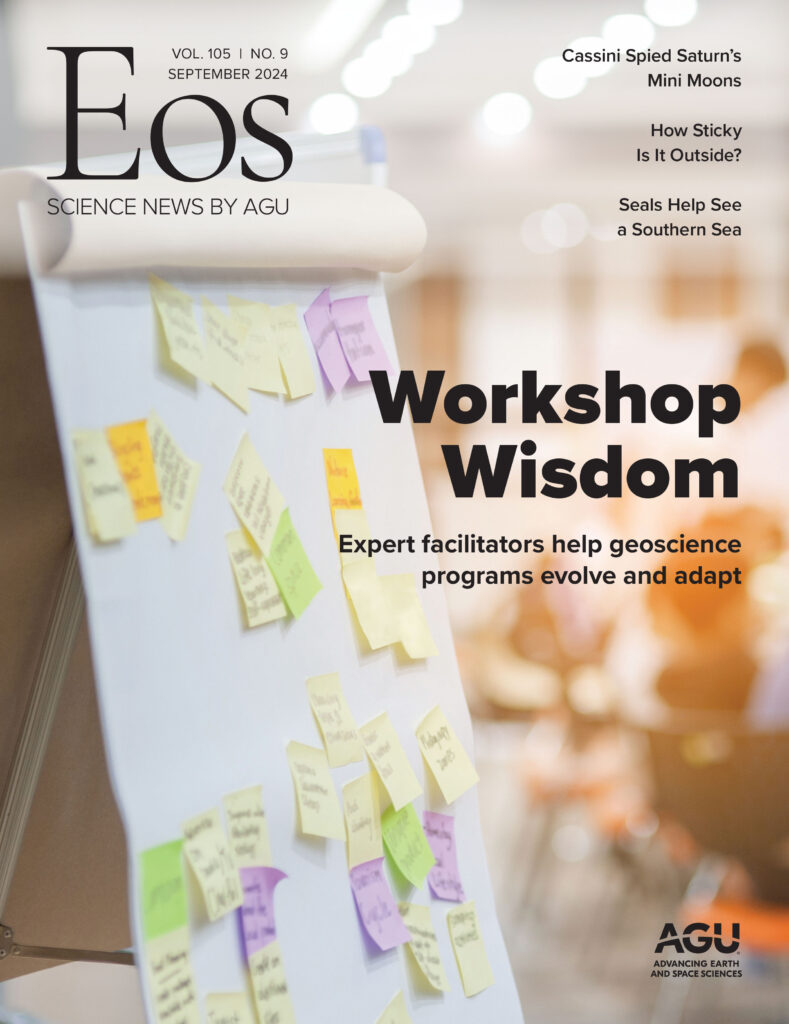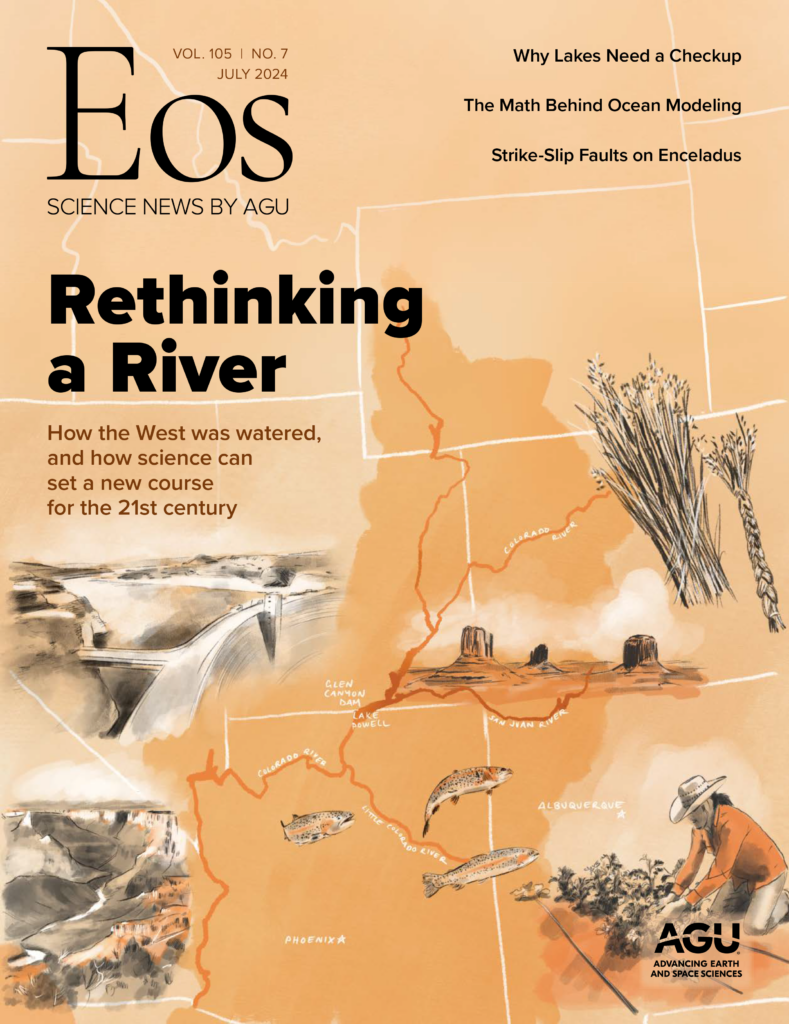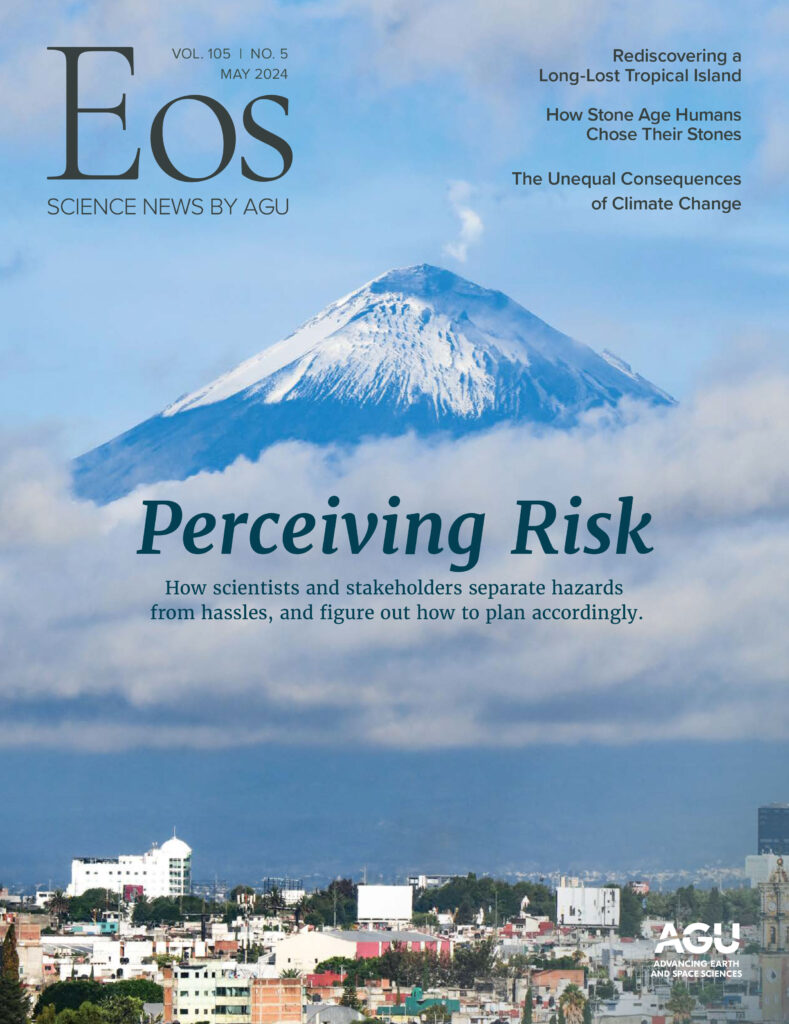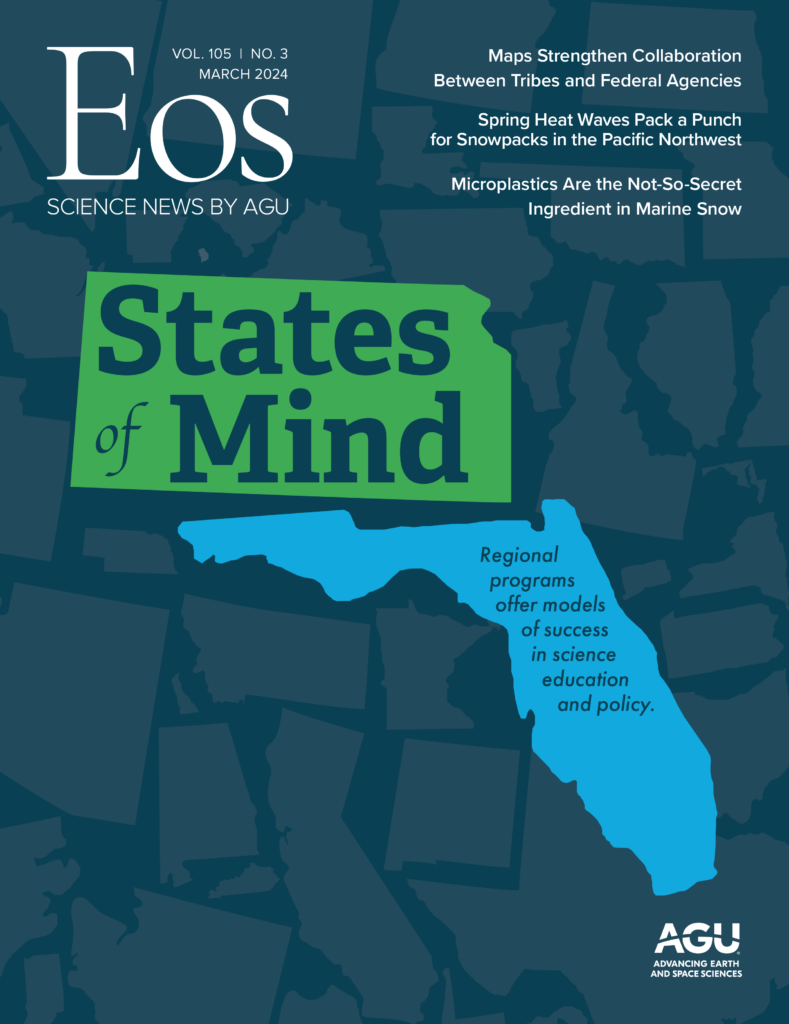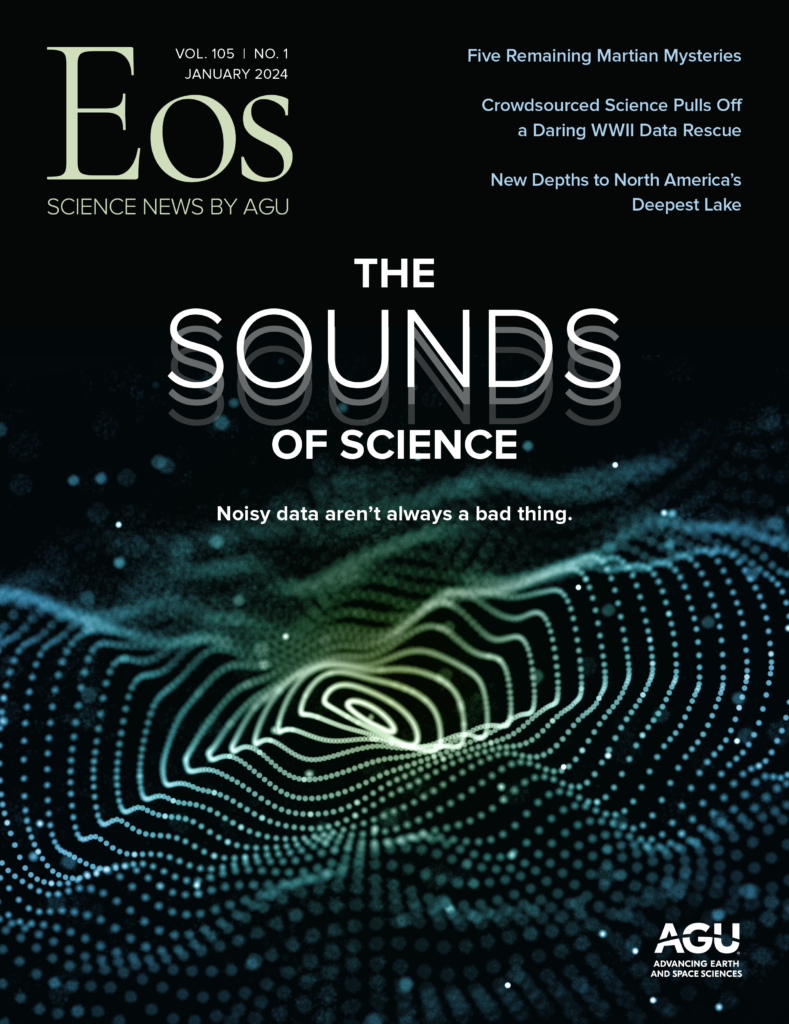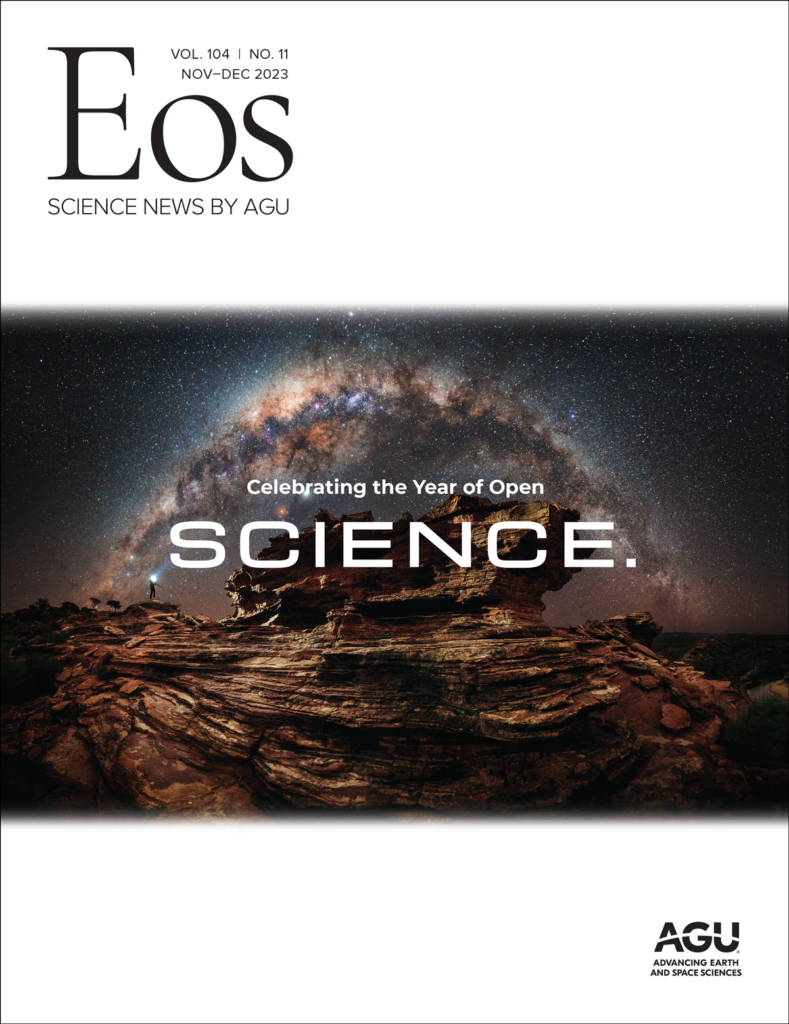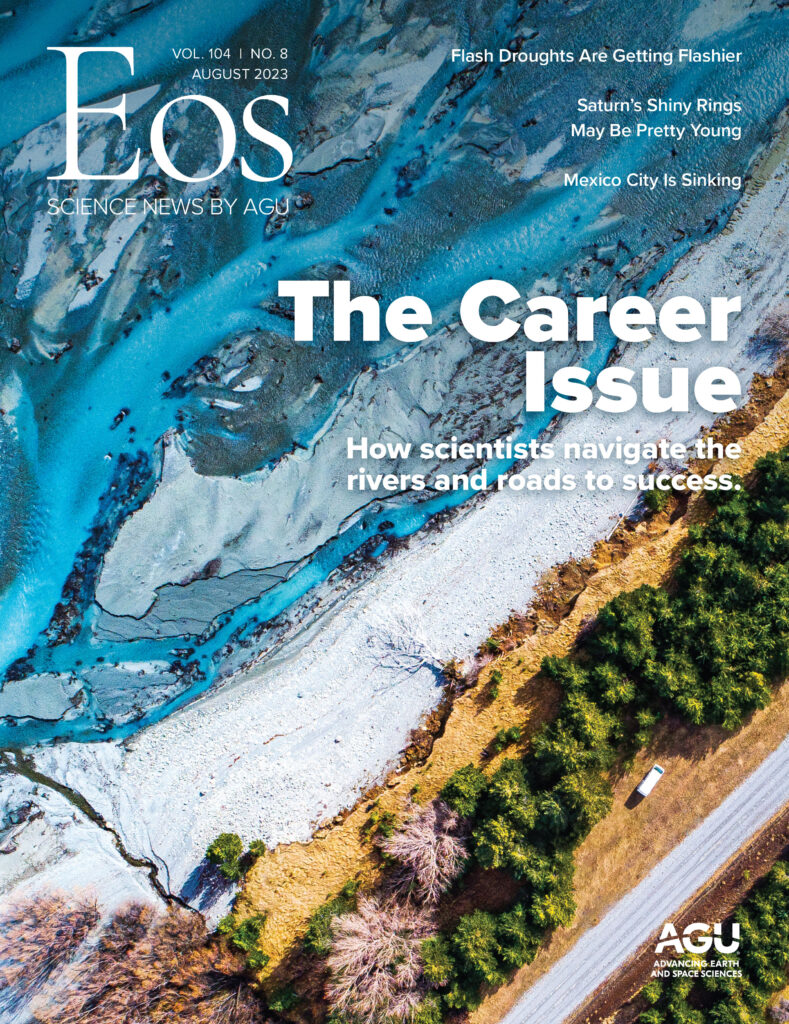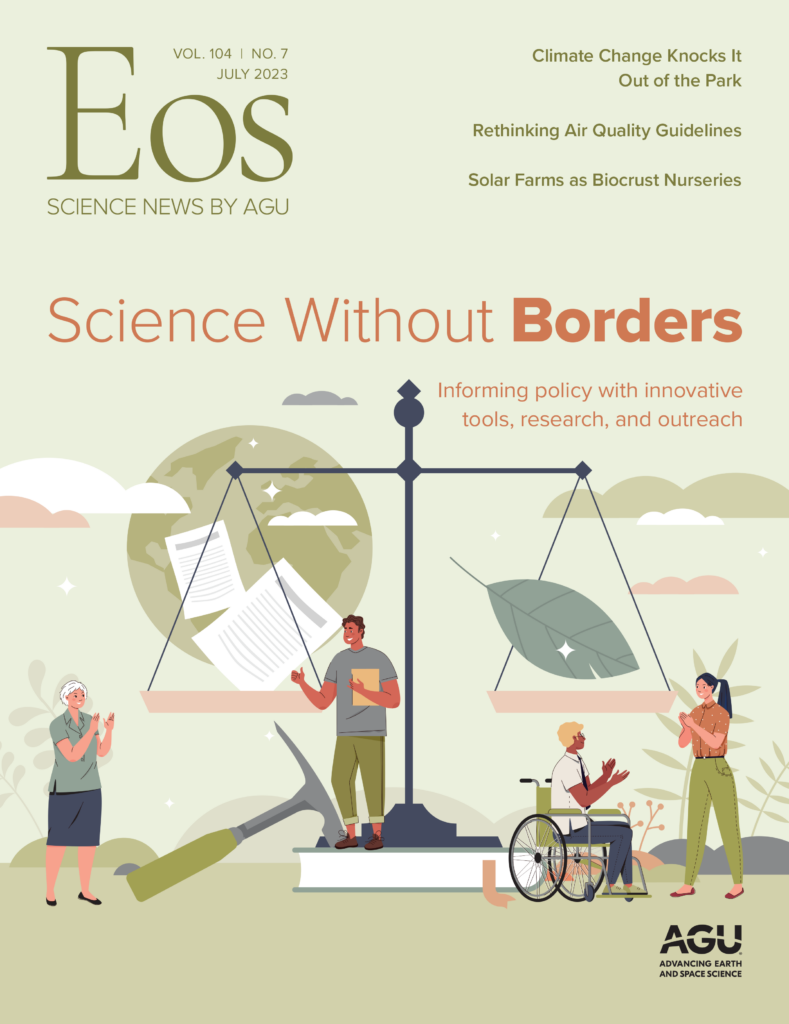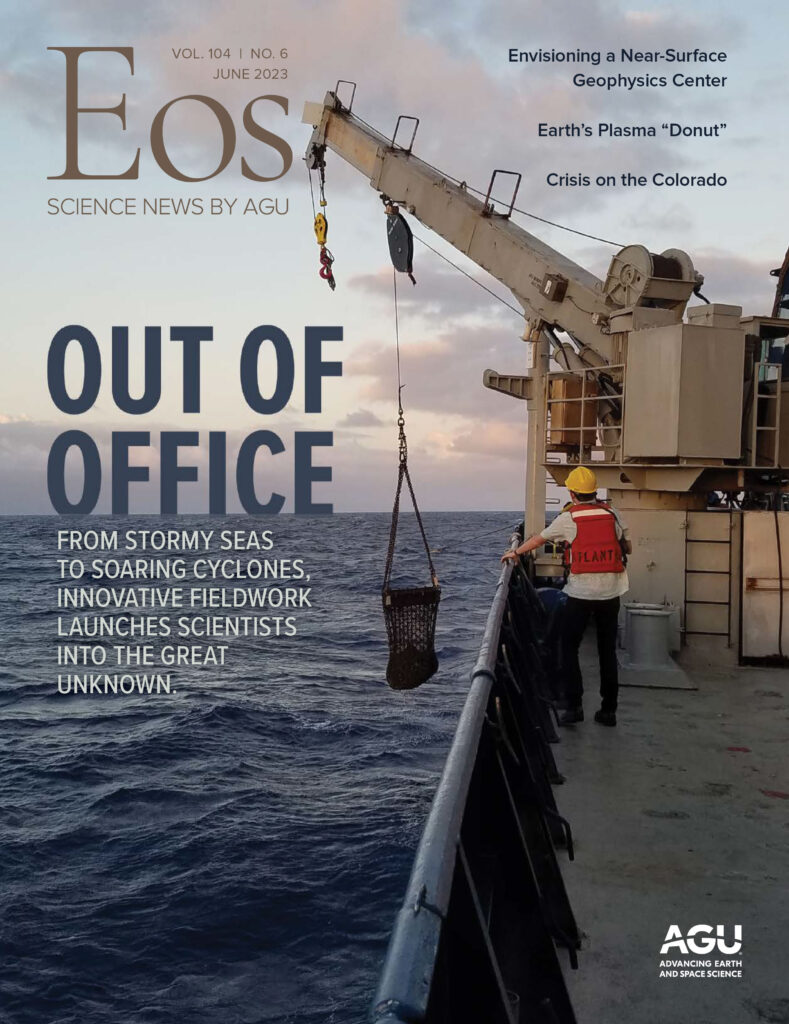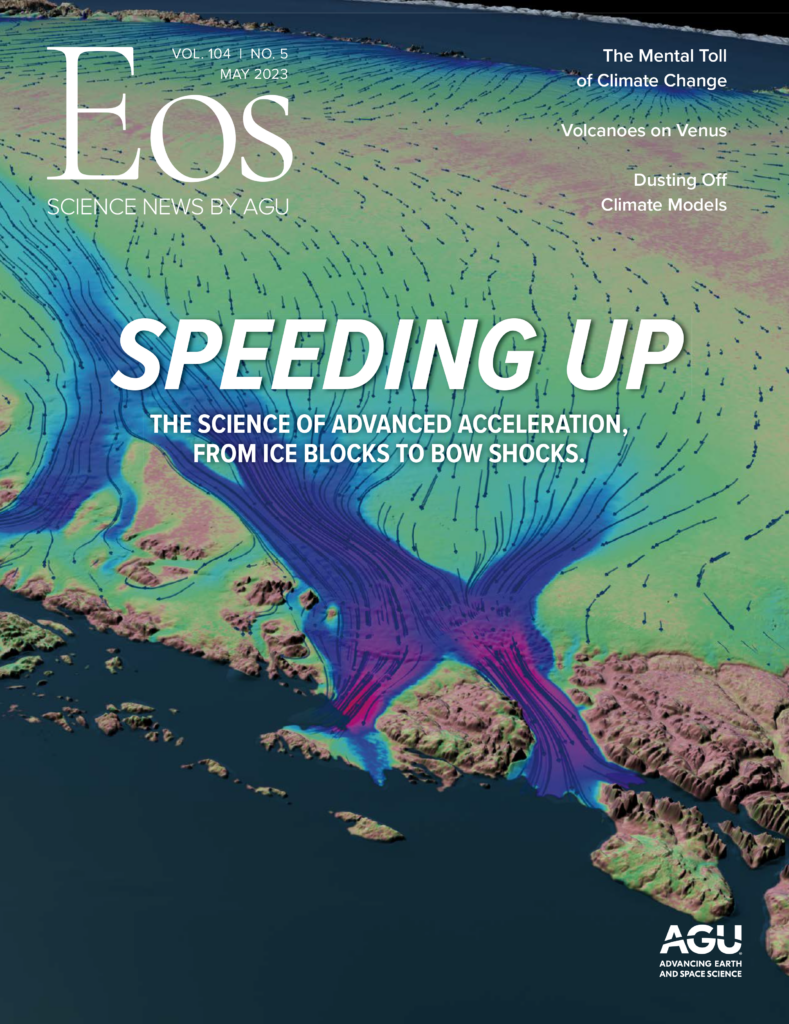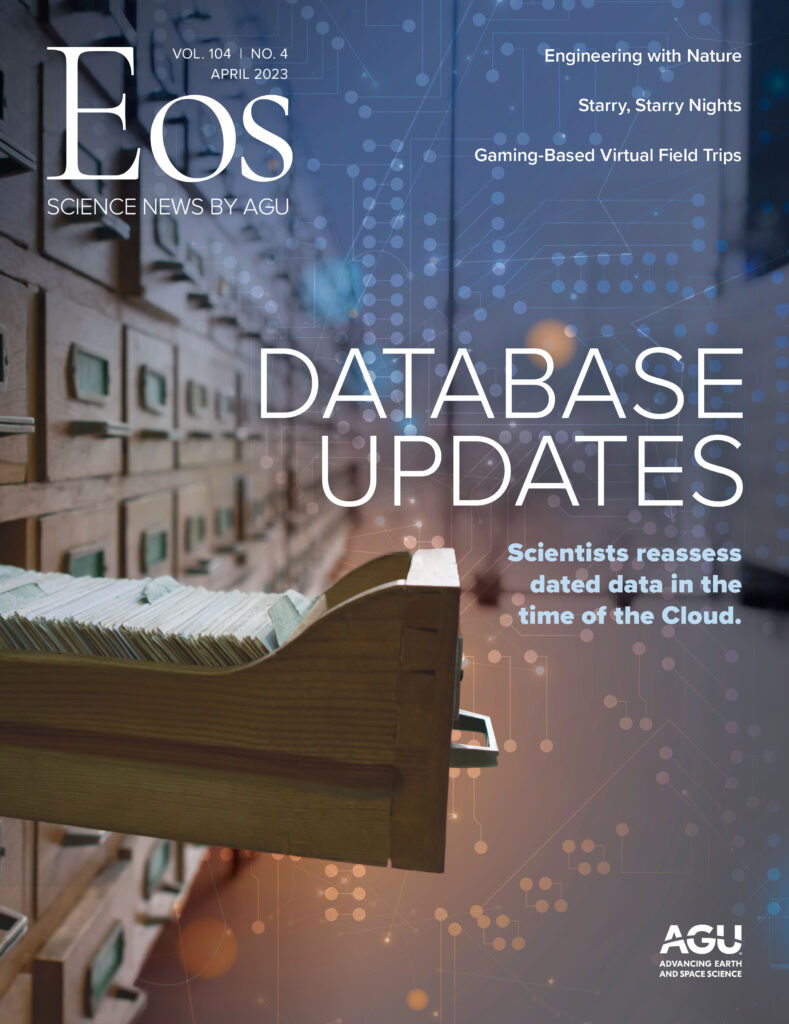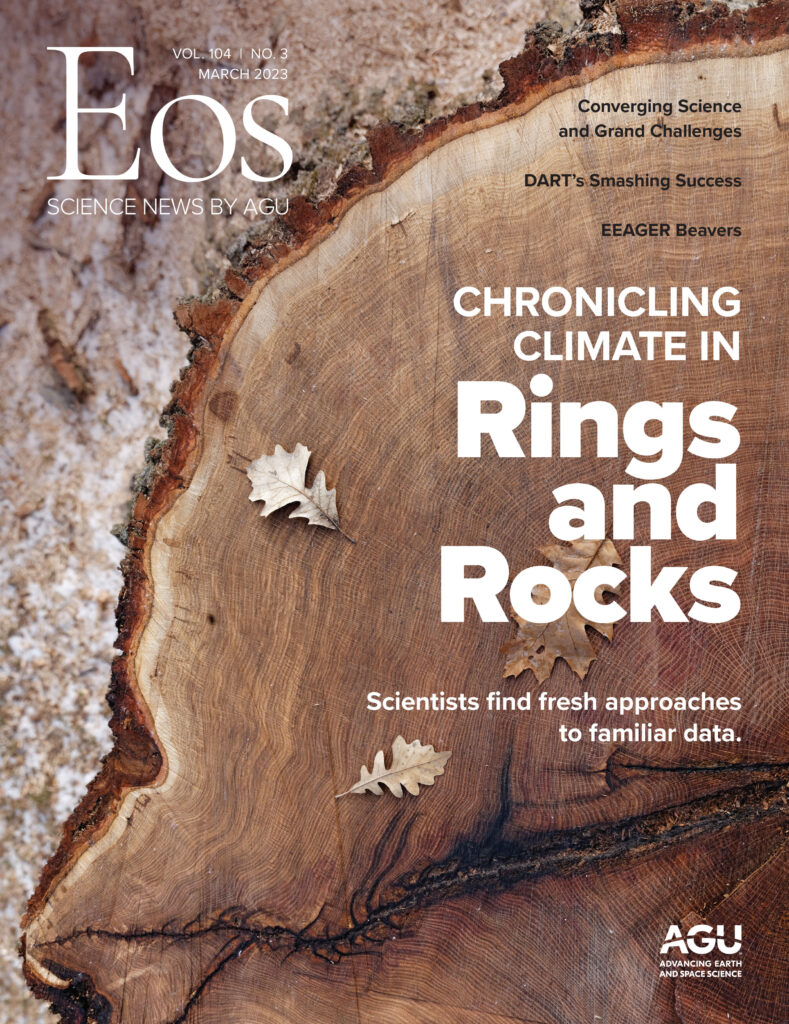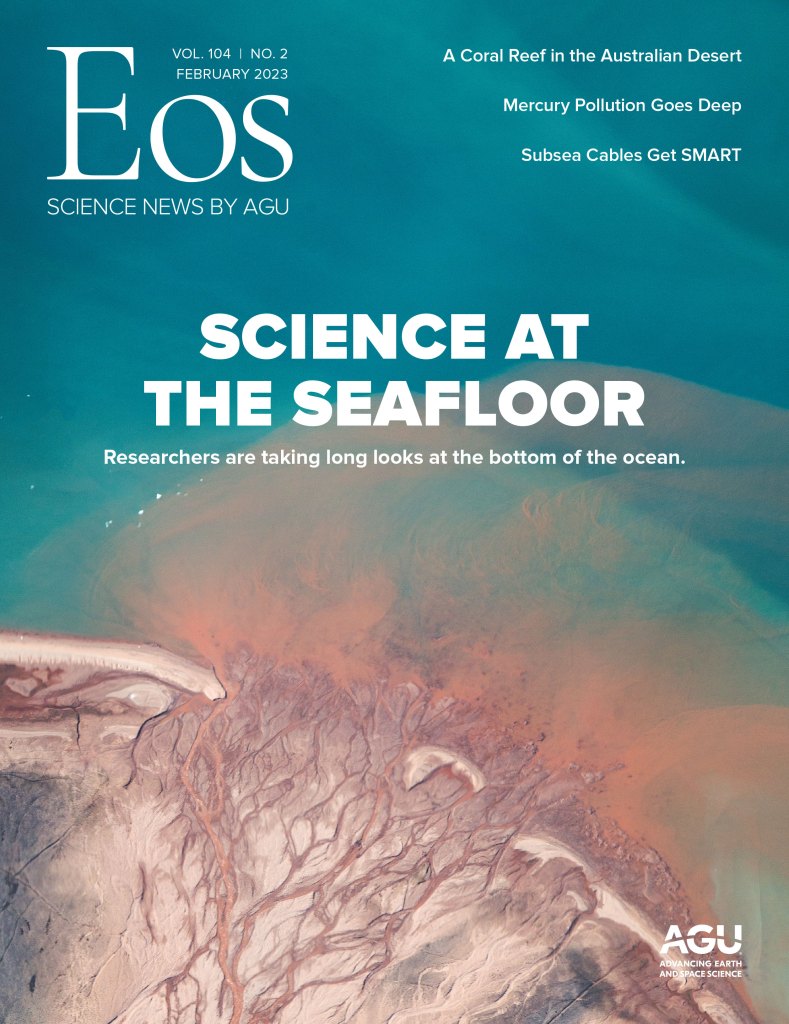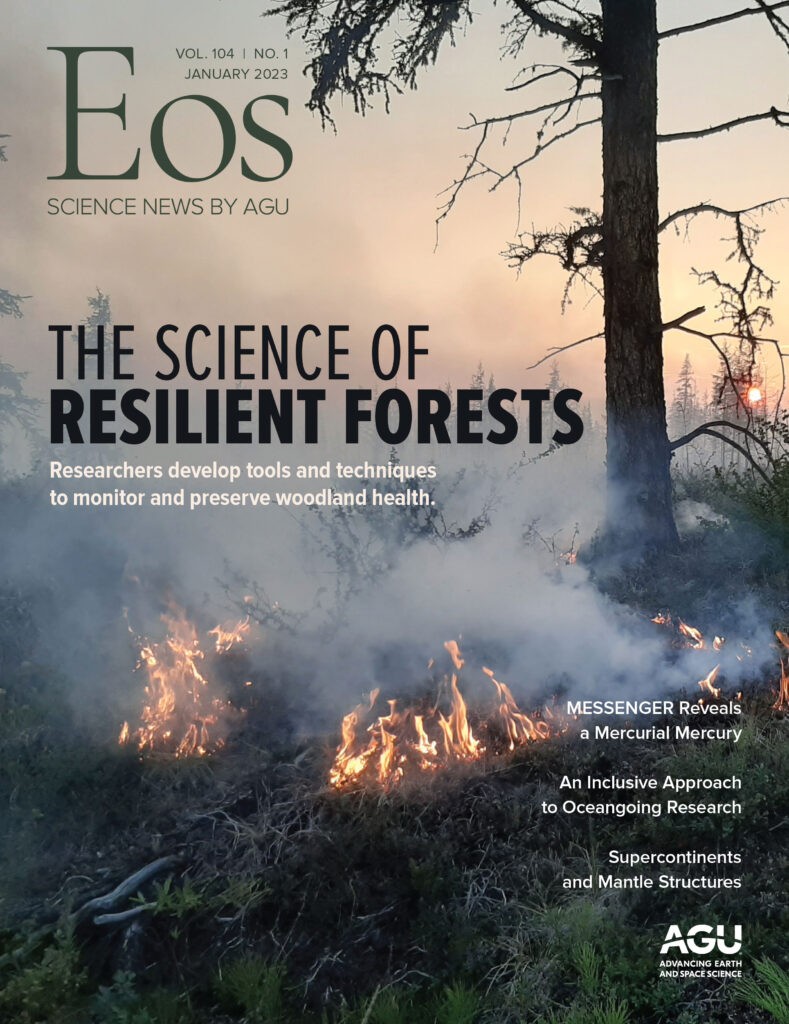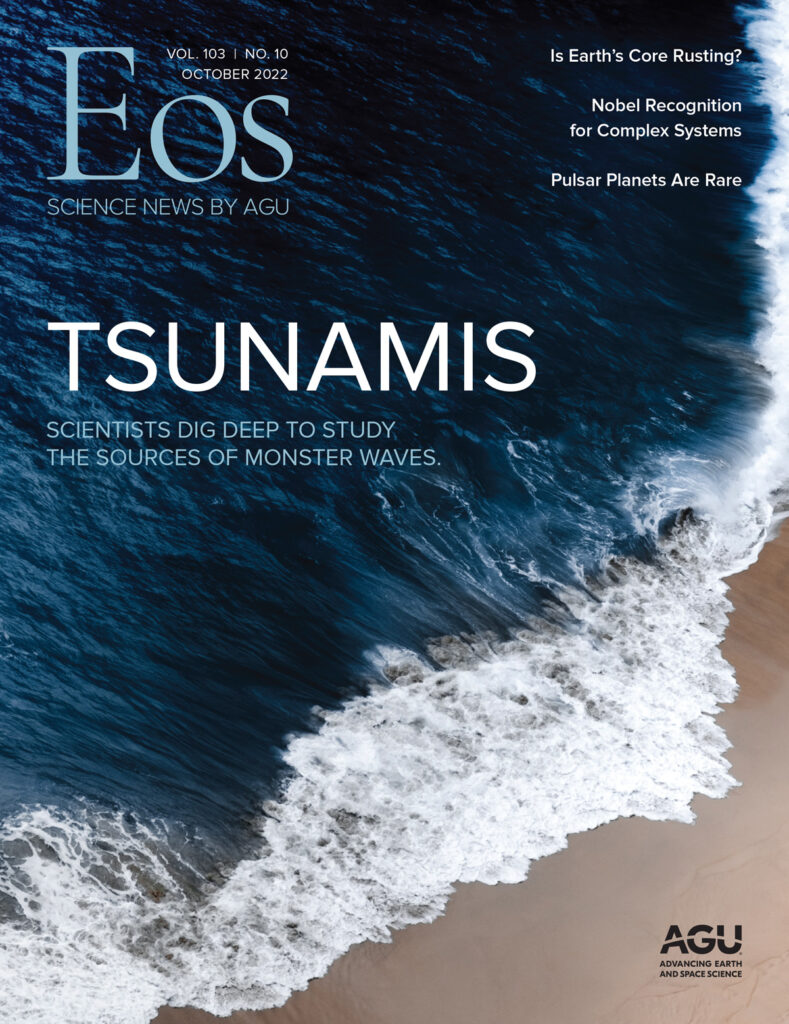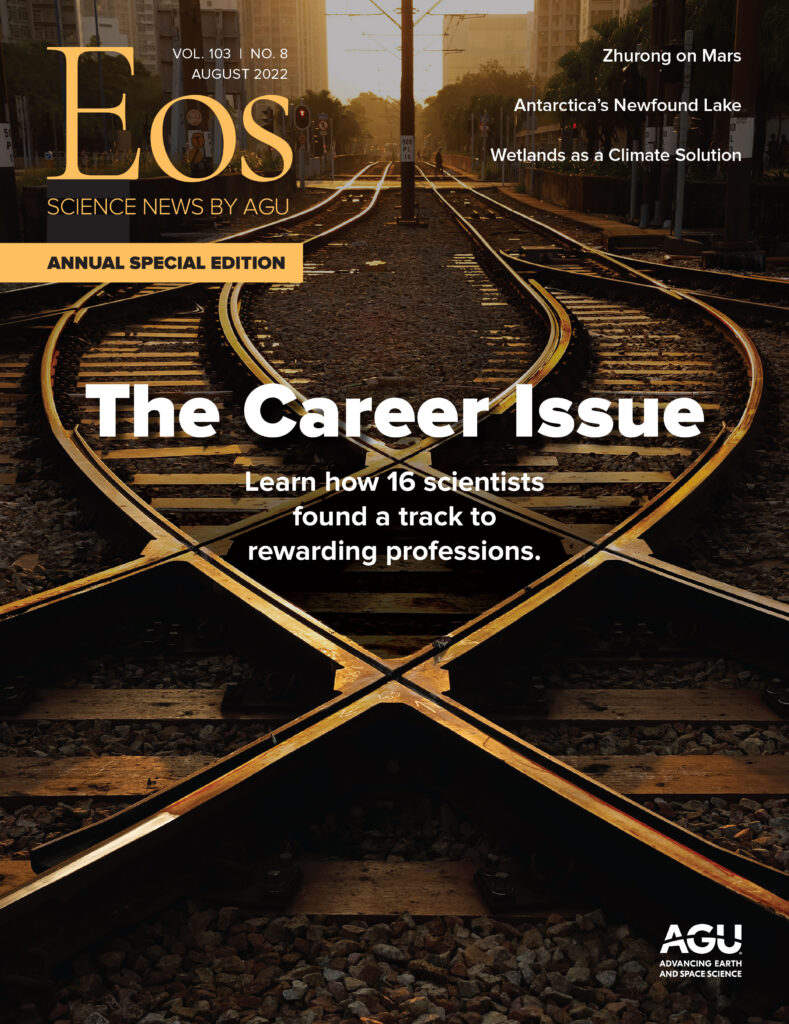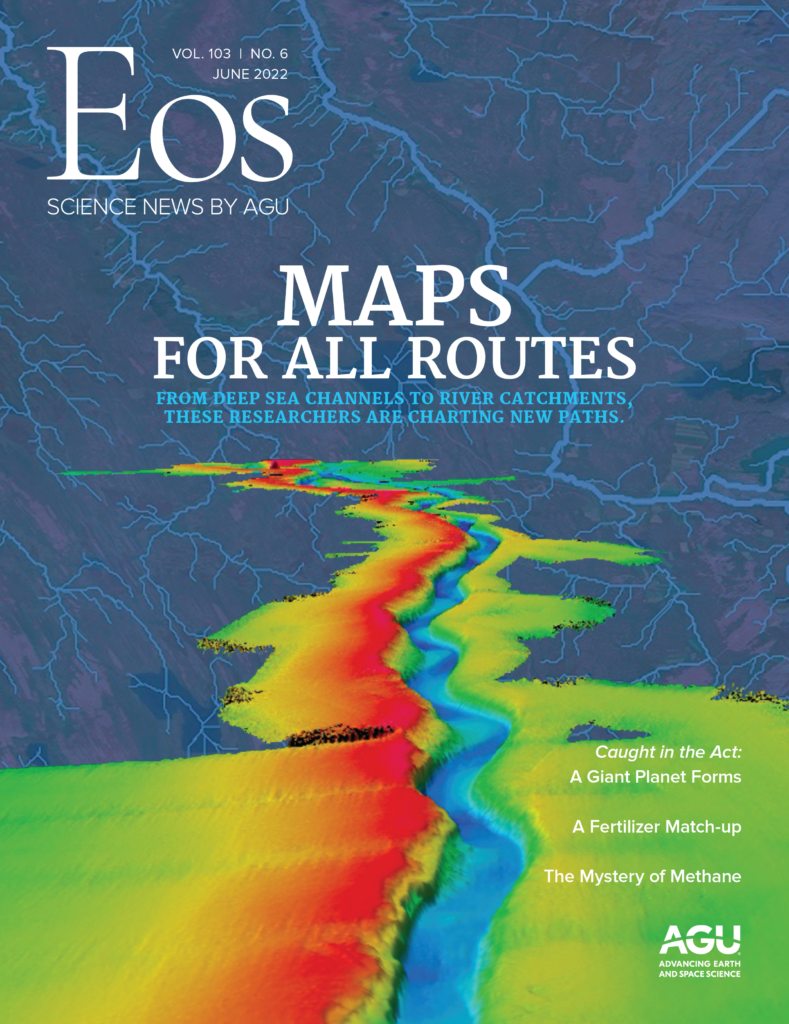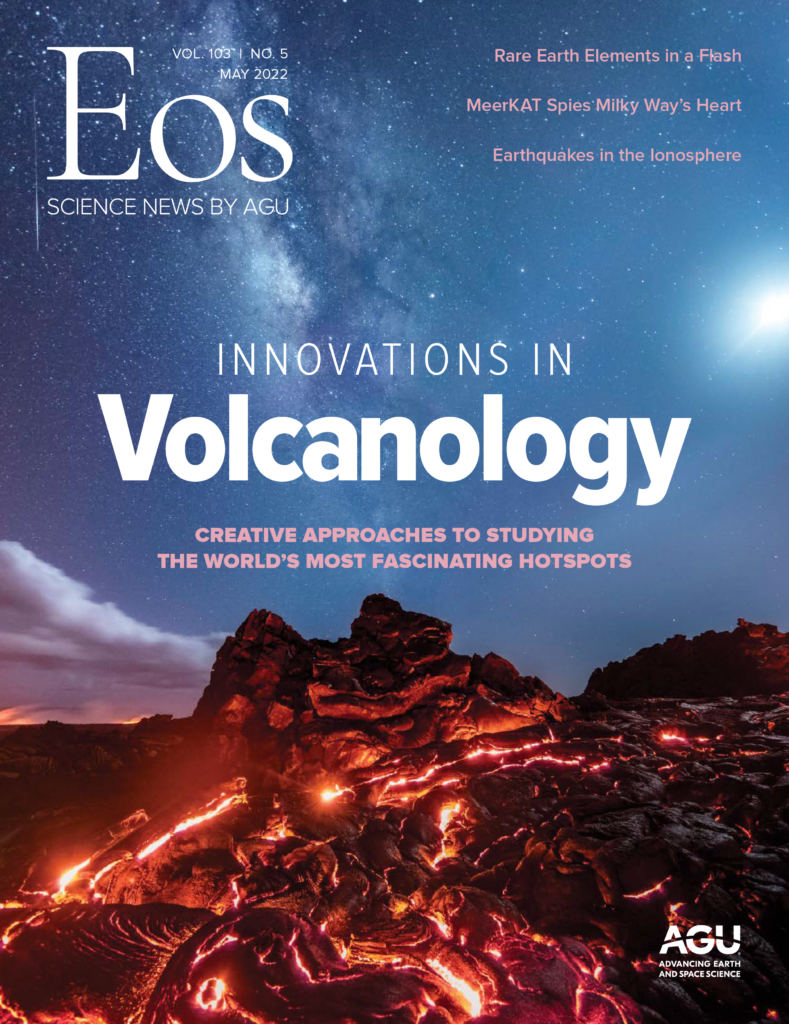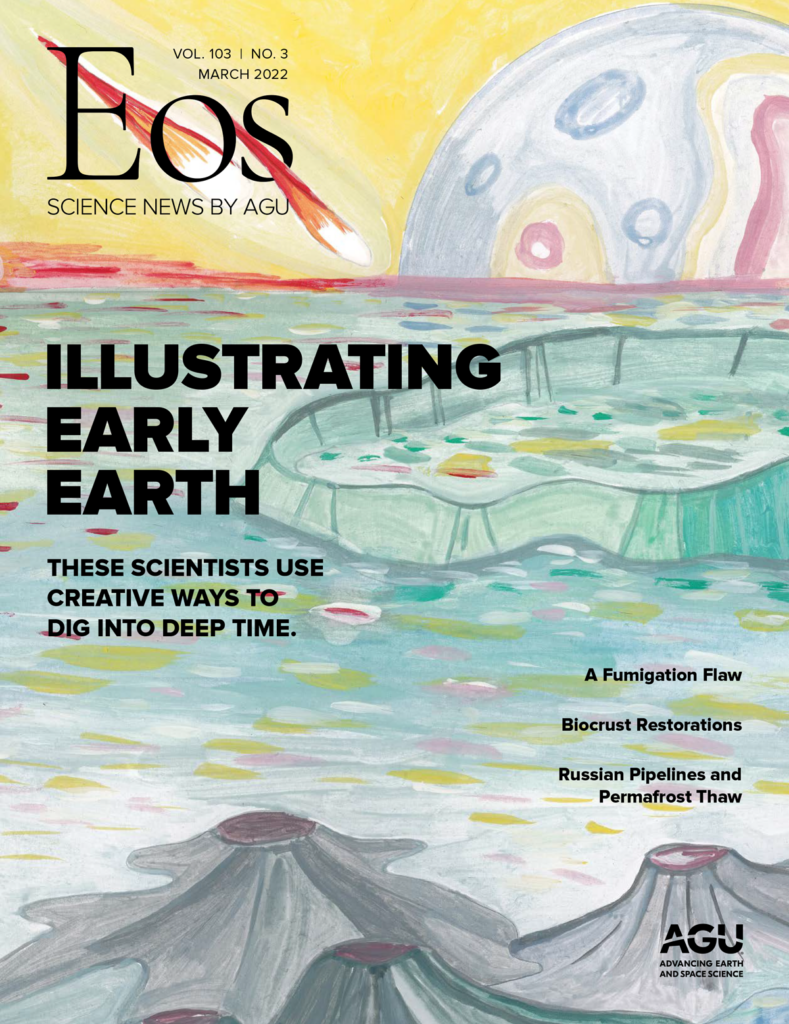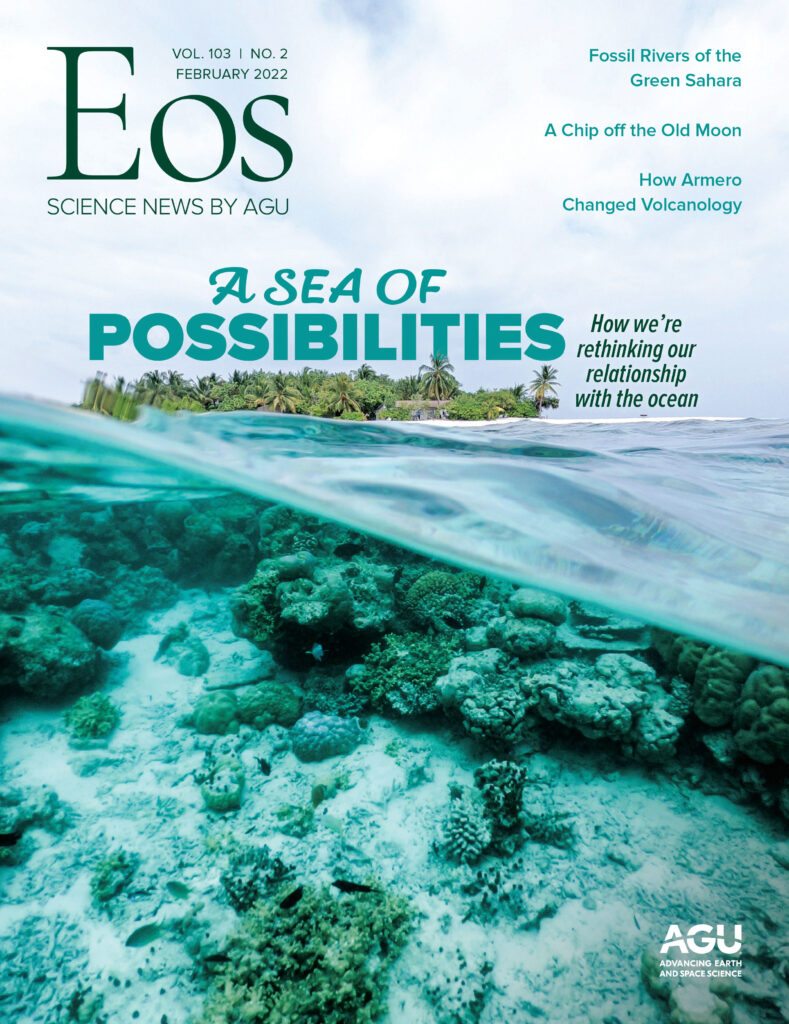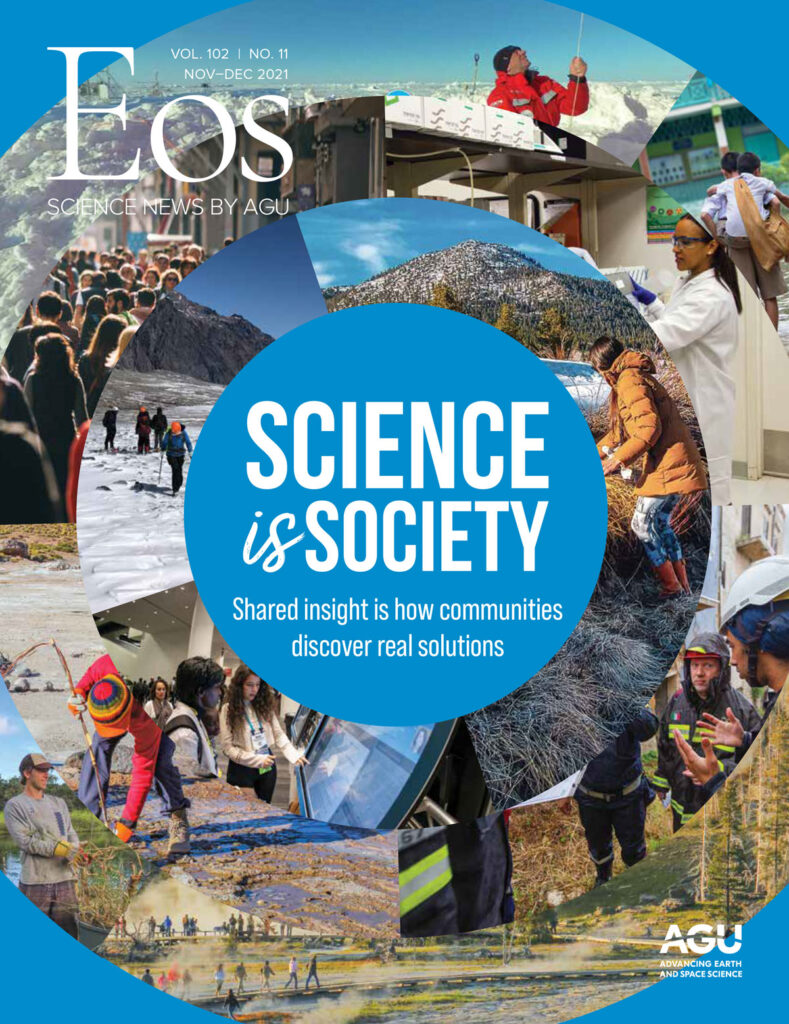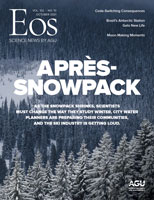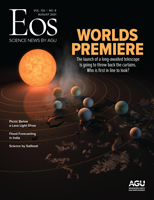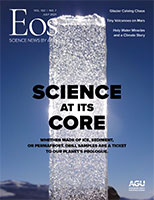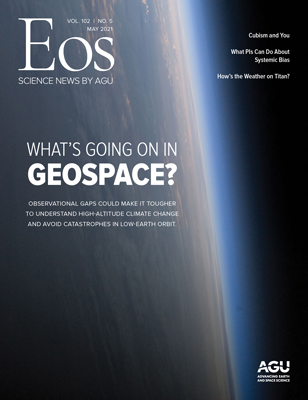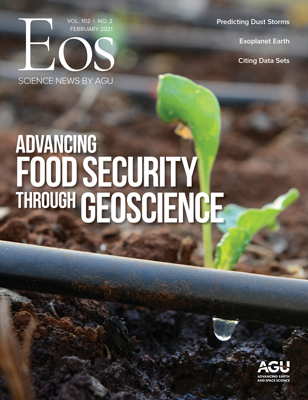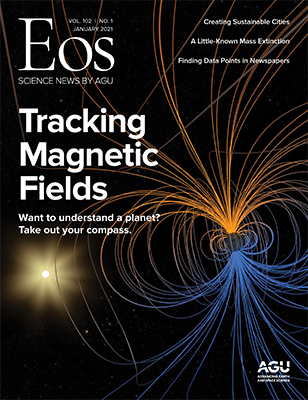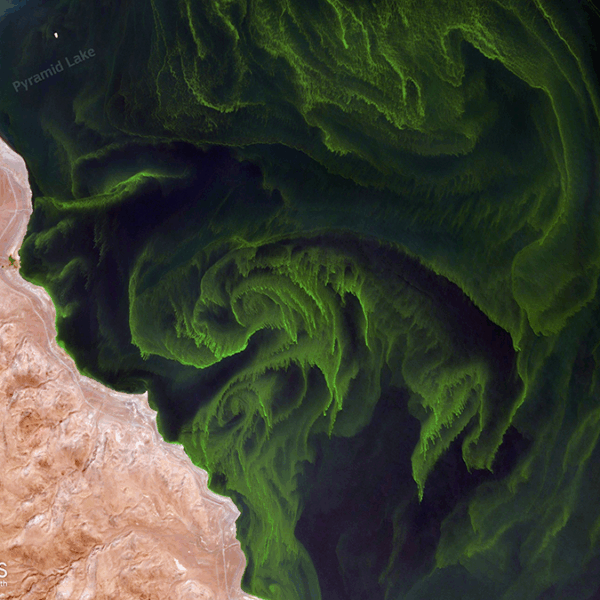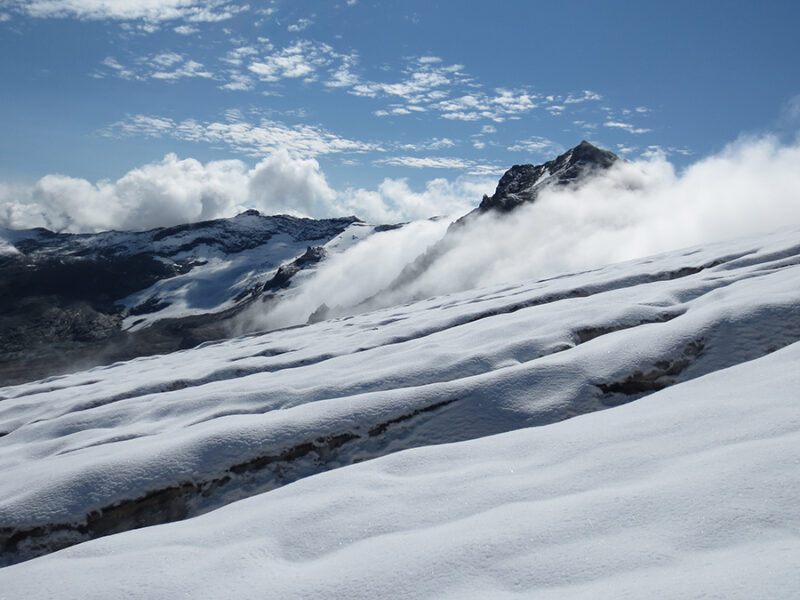Eos Special Projects
Every month, Eos digs deep into a specific issue among Earth and space scientists with resources like articles, opinions, and research spotlights.
2026 | 2025–2021
2025–2021
Where Science Connects Us
CubeSats on The Rise
From Devastation to Data
The Career Issue
Boots On the Ground
Illuminating the Abyss
One Water, Many Solutions
Connecting Over Climate
Reflections from the Roof of the World
How Great Was the Great Oxidation Event?
Now Ore Never
What’s Next for Science?
Land of The Long White Cloud and The Deep Blue Sea
Workshop Wisdom
The Career Issue
Rethinking a River
All Roads Lead to Science
Perceiving Risk
Total Eclipse of the Sun
States of Mind
Caching Carbon
The Sounds of Science
Wide. Open. Science.
Otherworldly Oceans
An Eye on the Mediterranean
The Career Issue
Science Without Borders
Out of Office
Speeding Up
Database Updates
Engineering With Nature to Face Down Hurricane Hazards
Welcome to a New Era in Geosciences Data Management
Deluges of Data Are Changing Astronomical Science
Overcoming the Challenges of Ocean Data Uncertainty
Your Databases Need a Reboot
Chronicling Climate in Rings and Rocks
Finding Climate History in the Rafters of New York City Buildings
A Post-Impact Deep Freeze for Dinosaurs
A Puzzle Mat for Assembling Colombia’s Geologic History
Converging Toward Solutions to Grand Challenges
Arctic Glaciers, a Peruvian Volcano, and a Russian Famine
New Discoveries in Old Records
Science at the Seafloor
Grains of Sand: Too Much and Never Enough
Seeing Through Turbulence to Track Oil Spills in the Ocean
Clues from the Sea Paint a Picture of Earth’s Water Cycle
River Floods Can Trigger Powerful Underwater Landslides
A Mysterious Dome Reveals Clues to Australia’s Miocene History
Seafloor Reveals a Period of Rapid Retreat for Thwaites Glacier
What’s Up at the Bottom of the Ocean?
The Science of Resilient Forests
Last Tree Standing
A Lidar’s-Eye View of How Forests Are Faring
For Western Wildfires, the Immediate Past Is Prologue
Testing the Resilience of the Amazon
Neighborhood Strategies Inform Boston’s First Urban Forest Plan
Scientists Bring Forests into the Internet of Things
A Forest, for the Trees
Science Leads the Future
Are We Entering the Golden Age of Climate Modeling?
Alumni Push Universities Forward on Climate
Indoor Air Pollution in the Time of Coronavirus
How an Unlikely Friendship Upended Permafrost Myths
Simpler Presentations of Climate Change
The Alarming Rise of Predatory Conferences
Science Leads the Future, and the Future Is Now
Tsunamis
Seismic Sources in the Aleutian Cradle of Tsunamis
Is Earth’s Core Rusting?
“Landslide Graveyard” Holds Clues to Long-Term Tsunami Trends
Muography Array Under Tokyo Bay Spots Meteotsunami Waves
Making Waves
Solar Encounter of the High-Tech Kind
Shake, Rattle, and Probe
11 Discoveries Awaiting Us at Solar Max
A New Journey Around (and Around) the Sun
Coronal Dimmings Shine Light on Stellar CMEs
Chinese-Led Solar Research Is Looking Bright
Brighter Skies Ahead
The Career Issue
The Career Issue: Change Is the Only Constant
Glacial Knowledge Gaps Impede Resilience to Sea Level Rise
The Career Issue: OK, But Explain “Anything”
Field Trip
Striking Out into the Field to Track Slip on the Sumatran Fault
An Unprecedented View Inside a Hurricane
Arctic Unicorns and the Secret Sounds of a Glacial Fjord
Playing It Safe in Field Science
Adventure Time
Maps for All Routes
Mapping a River Beneath the Sea
Exploring Subduction Zone Geohazards on Land and at Sea
A Sharper Look at the World’s Rivers and Catchments
Charting Paths to New Knowledge
Innovations in Volcanology
Studying Volcanoes Through Myths, Legends, & Other Unconventional Data
Sensing Iceland’s Most Active Volcano with a “Buried Hair”
A Cagey Approach to Speedy and Safe Seafloor Deployments
Drones Discover Hidden Weaknesses of Collapsing Volcanoes
Myths, Legends, and Buried Hair
Amazonia
Africa’s Earth, Wind, and Fire Keep the Amazon Green
The Nutrient-Rich Legacy in the Amazon’s Dark Earths
Mining Threatens Isolated Indigenous Peoples in the Amazon
Pollution Is Disrupting Rain Cycles in the Amazon
The Galápagos Islands: The Ultimate Outdoor Soil Science Laboratory
Dust in the Wind, Dirt Under Our Feet, and Dunes of Another World
Illustrating Early Earth
The Young Earth Under the Cool Sun
Long-Term Planning for Deep-Time Labs
A Simple Recipe for Making the First Continental Crust
Updating Dating Helps Tackle Deep-Time Quandaries
Earth’s Continents Share an Ancient Crustal Ancestor
Meet Jane, the Zircon Grain—Geochronology’s New Mascot
How to Work in the Dark on Deep Time
A Sea of Possibilities
A New Mayflower, Named for the Past, Autonomously Navigates the Future
The Century-Old Renewable You’ve Never Heard Of
The 2-Year Countdown to Deep-Sea Mining
Quit Worrying About Uncertainty in Sea Level Projections
Melting Arctic Sea Ice Strengthens Tides
Science Off the Seashore
Hardware Solutions
A Bright, LED-Lit Future for the Ocean Sciences
Lasers and Ultracold Atoms for a Changing Earth
Cormorants are Helping Characterize Coastal Ocean Environments
Autonomous Vehicles Could Benefit from Nature
“The Internet of Things” Boosts Agricultural Livelihoods in India
Lasers Have the Makings of a 21st-Century Geoscience Tool
Build It, and the Science Will Come
Science Is Society
The Capital’s Waterways Could Be Swimmable by 2030
Ocean Terrain and the Engineering Challenges for Offshore Wind Farms
Water Wisdom: The Indigenous Scientists Walking in Two Worlds
Australia’s Unfolding Geoscience Malady
Hear Ye! Hear Ye! A Declaration of the Rights of the Moon
Chile’s Glacier Protection Law Needs Grounding in Sound Science
Forecasters Navigate a HIGHWAY to Success Around Lake Victoria
Knowledge Brings Us Together
Après Snowpack
The Challenges of Forecasting Small, But Mighty, Polar Lows
The Changing Climate’s Snowball Effect
How the Ski Industry Stopped Worrying and Learned to Love Climate Activism
How Infrastructure Standards Miss the Mark on Snowmelt
The Who, What, When, Where, and Why of the Polar Vortex
Testing on the Tundra: NASA Snow Program Heads North
SnowSchool Spans the States
Winter’s Melting Point
The Career Issue
Choose Your Own Geoscience Adventure
Higher Education During the Pandemic: Truths and Takeaways
Reimagining STEM Workforce Development as a Braided River
Charting the Paths to a Scientific Career
New Telescope, New Worlds
Exoplanets in the Shadows
Overture to Exoplanets
The Forecast for Exoplanets is Cloudy but Bright
“Earth Cousins” Are New Targets for Planetary Materials Research
Oddballs of the Exoplanet Realm
Thousands of Stars View Earth as a Transiting Exoplanet
Taking Stock of Cosmic Rays in the Solar System
Gap in Exoplanet Size Shifts with Age
Unveiling the Next Exoplanet Act
Science at Its Core
Cores 3.0: Future-Proofing Earth Sciences’ Historical Records
Improving Access to Paleoclimate Data
An Unbroken Record of Climate During the Age of Dinosaurs
Narwhal Tusks Record Changes in the Marine Arctic
Cold Curriculum for a Hot Topic
The Catcher in the Ice
Cutting to the Core
Urban Forests
What’s Going on in Geospace?
GeoPRISMS: Filling in the Margins
